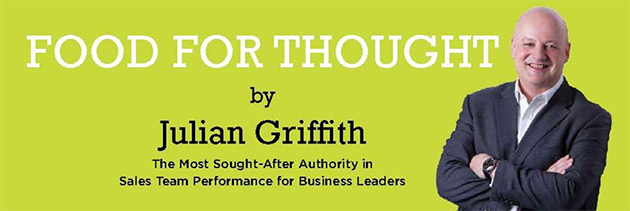
One of the most common problems shared by the delegates at our “Sales & Revenue Growth Masterclass” last week, was how hard they are finding it to attract strong salespeople into their business.
This is a key challenge, and one that needs to be got right, if you are to build a high-performing sales team.
If this problem hits a chord with you, be objective, and ask yourself, “what specific sales recruitment processes do we have in place that ensure we hire strong performers and protect us from making mistakes?”.
Mistakes made when hiring sales staff are widespread and expensive. We ask our clients to work out the costs and averaged out, the money lost on a bad hire is $120,000.
So how do we protect ourselves from hiring a sales ghost?
Firstly, allow me to explain what a sales ghost is. It’s our name for someone who looks and dresses like a sales person, has all the patter and charm, a strong resumé and always interviews well. Impressed, and sure they will solve your sales problem, you enthusiastically bring them on board, only to realise, usually about six months’ later that they can’t sell.
When asked to work with our clients to bring in strong salespeople for them, we follow a proven process, I will share an overview format which you should find helpful.
First thing, if you do find that elusive sales star, will he or she be coming into an environment that’s going to make them want to stay? Will your sales management keep him or her engaged? Do you have the right remuneration structure, one that will directly reward sales success? What training will you be giving? Are you 100% sure on role clarity? Do you have a decent onboarding program?
Assuming you have these covered, it’s time to start searching.
Be clear what the role is, sales manager (not just a title, but manages a sales team), someone who will hunt out new business, often referred to as a BDM, key clients or general accounts management.
Write a great job advertisement. Don’t ramble on about your business like everyone else does, instead make it clear what’s in it for them.
Research the market and be crystal clear what salary package will be offered. The base salary, a genuine realistic commission, car allowance, or if supplying a vehicle, exactly what it is, and superannuation. When doing this for a client, I always detail these things in my first conversation with the candidate and make a point of asking them exactly what their current salary package is. There must be alignment here, ideally a step up for them, but take great caution when a candidate has been earning a lot more and then tells you that the money isn’t that important to them.
Rather than rely on gut feel, we recommend using a specific sales assessment tool to flush out the sales ghosts, tailored for the role with a comprehensive list of criteria. Find the right tool, trust what it tells you and stick by the results.
For those who get through, hold short phone interviews. Ten minutes is plenty of time to hear how they build rapport. If they leave you feeling unimpressed, they’ll have the same effect on your prospective customers!
The first interview should follow the lines of an audition, you need to see how they perform when put under pressure. Once you have your final shortlist, I recommend no more than 3 candidates, hold second interviews, and if possible ask a colleague to join you as an observer.
You must do refence checking, but if you do find the one you want to hire, don’t delay and if possible, make them an offer to join you on the spot.



